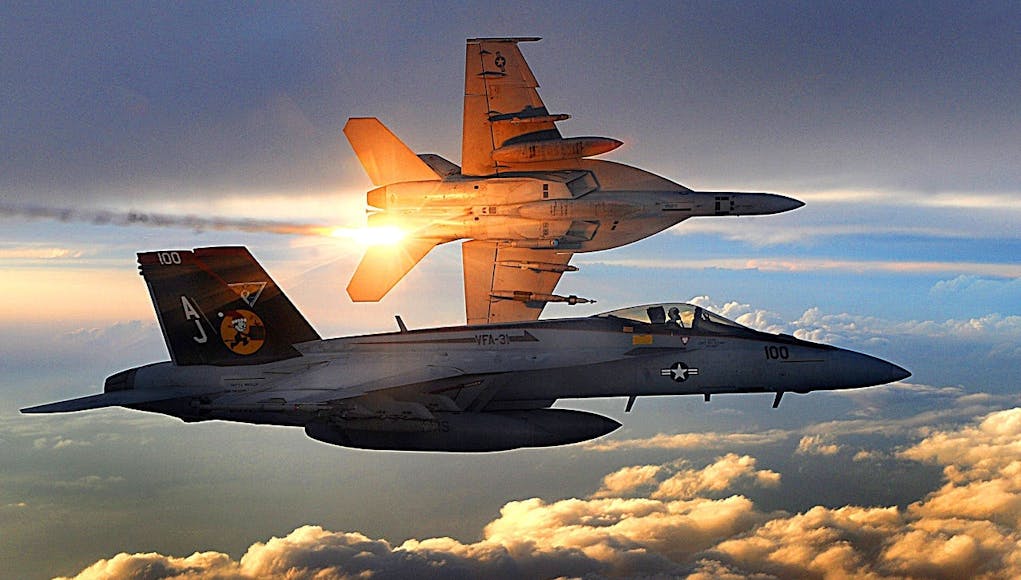Daniel Gouré, Ph.D., is a vice president at the public-policy research think tank Lexington Institute. Goure has a background in the public sector and U.S. federal government, most recently serving as a member of the 2001 Department of Defense Transition Team.
The U.S. and its Coalition partners have been fighting the Islamic State of Iraq and Syria (ISIS) for almost a decade.
During much of this period, ISIS was but one of many Sunni terrorist groups operating in Iraq and, after 2011, in Syria. But beginning in 2014, ISIS swept out of Syria and into Iraq, capturing Mosul in June and almost reaching the gates of Baghdad.
The U.S. faced a potential national security catastrophe. Large portions of the Iraqi Army collapsed in the face of this onslaught. Having withdrawn most of their military forces from Iraq more than two years earlier, the U.S. and its Coalition partners were reluctant to recommit large land forces to its defense. Yet without immediate and powerful military assistance, the government in Baghdad could collapse. In addition, even if ISIS could be ejected from Iraq, there was still the problem of how to defeat the terrorist group’s Syrian stronghold.
The Obama Administration responded to the ISIS threat with a four-part strategy. It included supplying materials and training support for anti-ISIS forces in Iraq and Syria, a global campaign to isolate ISIS from sources of funding and manpower, and expanded humanitarian assistance to the victims of the terrorist group. The most important part of the strategy was a systematic campaign of airstrikes.
At the time, the Obama strategy was widely criticized. It was argued that in order to defeat ISIS, the U.S. would have to commit significant ground forces. While the U.S. and its Coalition partners have gradually increased the size of its commitment of ground forces in Iraq and Syria, the total number of “boots on the ground” today is only about 5,000. Moreover, the majority of these forces are limited to supporting the activities of indigenous forces.
News reports regarding the campaign to defeat ISIS have tended to focus on the ebb and flow of ground wars in Iraq and Syria. Over the past year, in particular, attention has been riveted on the intense fight to retake territory, particularly cities such as Mosul and Raqqa, from ISIS.
What has been little recognized and certainly under-reported is the extent of the air campaign run by U.S. Central Command supporting not only the fight against ISIS but also that against the Taliban in Afghanistan. Since 9/11, the U.S. military has conducted the longest and possibly one of the largest air wars in modern history. In fact, U.S. air units have been operating continuously in the region since the 1991 Persian Gulf War. Even after the withdrawal of most U.S. and Coalition forces from Iraq and Afghanistan in 2011, the air war went on. As the fighting in Iraq and Afghanistan intensified over the past several years, so did the air campaign.
The numbers tell the story of an air campaign remarkable for its breadth, intensity, and effectiveness. From October 2014, when the U.S. and its allies began Operation Inherent Resolve to defeat ISIS, to the present, the Coalition has flown more than 165,000 sorties. At least half of these have been conducted by the U.S. Air Force with additional major contributions from U.S. carrier-based aviation and land and sea-based Marine Corps aircraft.
Of this number, some 30,000 have been strike sorties delivering around 90,000 weapons. During this period, the Coalition conducted 25,000 airlift sorties, moving about 200,000 tons of cargo and 40,000 tanker sorties. The majority of these were performed by the U.S. Air Force.














Obama had no intension of destroying ISIS, he simply wanted them to them focus on overthrowing the Syrian government. Whenever organisations such as yours chose to whitewash history you deserve to hit with the “Fake News” stick. A massive welldone and thank you to Russia for fighting the good fight and exposing the West’s agenda and hypocracy.
is this a serious comment or are you just trolling like on the other pages, come on, if you really think the Russia has good intentions in Syria and that they are the ones to back to defeat ISIS then you are deluded.
The problem with all of this that you seem to be overlooking is the fact that when one lot of terrorists or a corrupt government is overthrown, up comes the next one. I’m nervous about the supply of weapons to Iraqi forces because history says that often, those weapons will end up being used for sinister causes. The pumping of weapons into the Middle East has helped new terrorist organisations take over, whether it is intentional or not, so I don’t think that there is a good fight as such. I agree with the airstrikes being conducted, but I doubt that the end of ISIS will mean the end of trouble in the region.
Steven Jones. ??????? troll much?